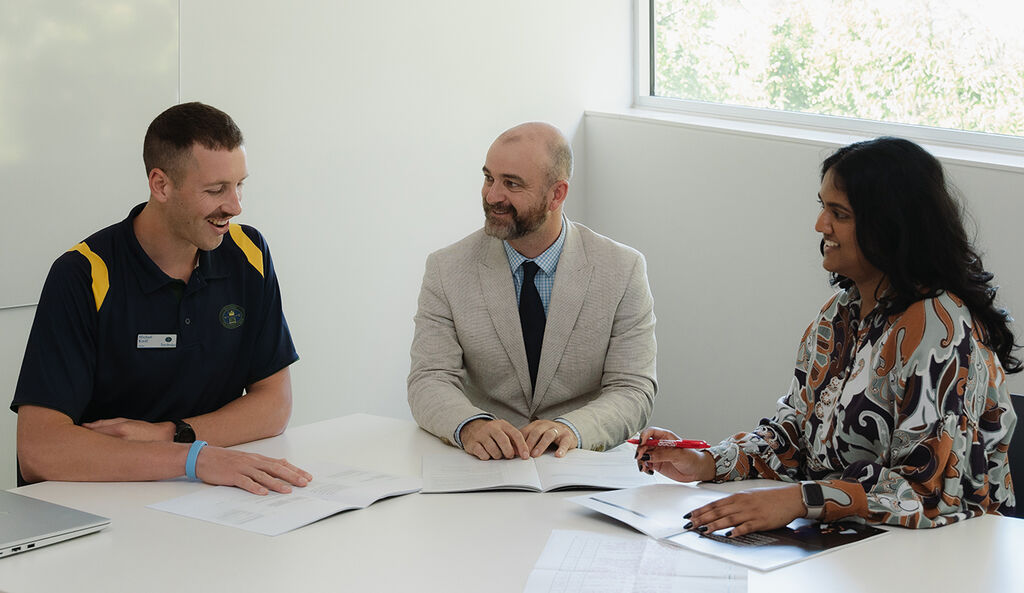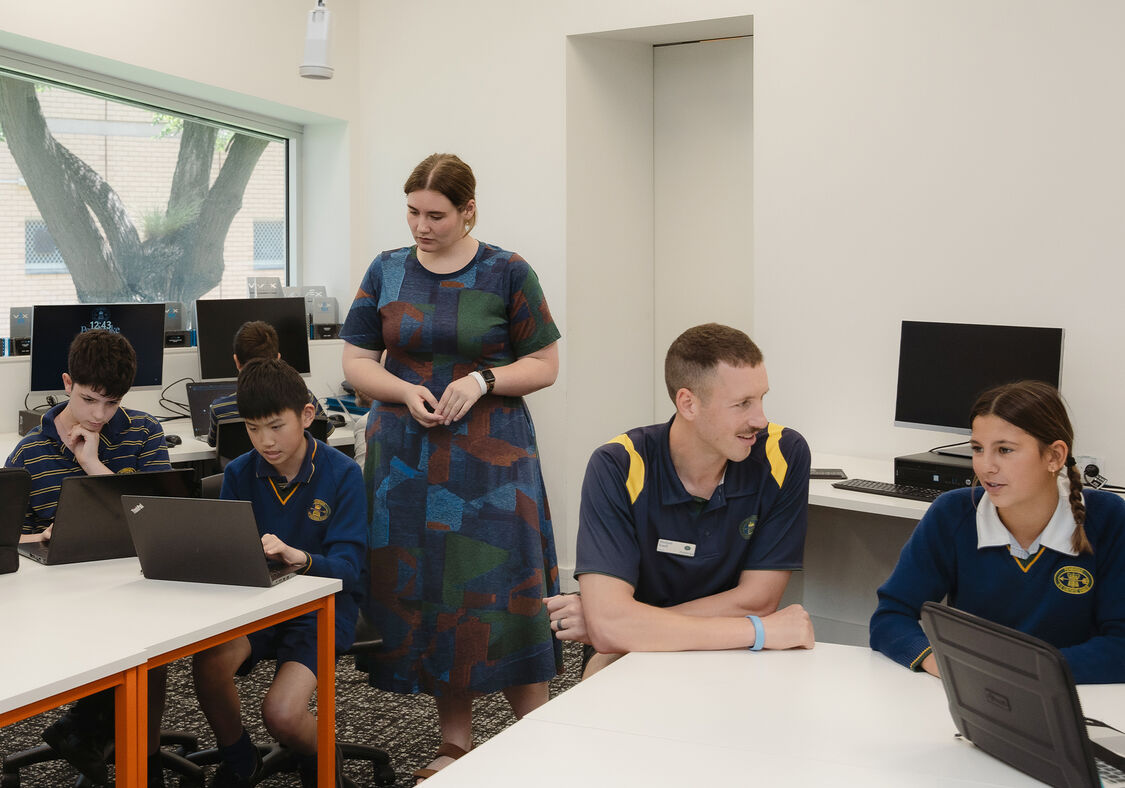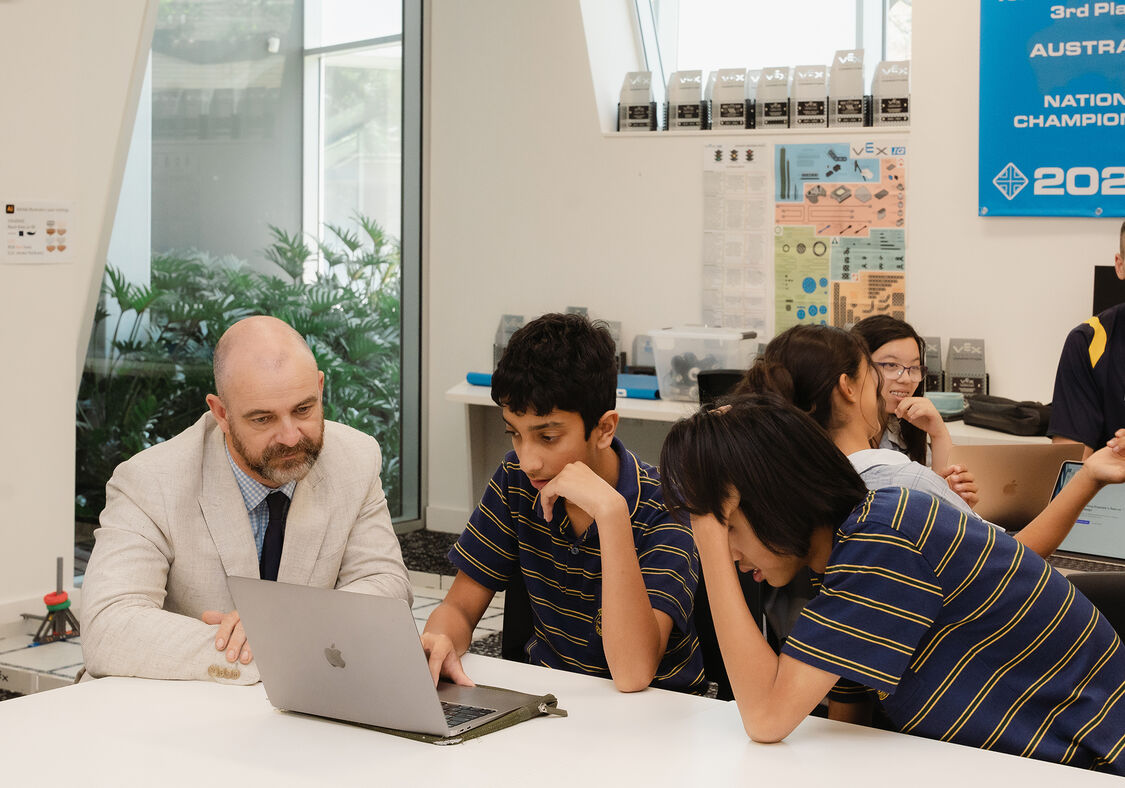28 May 2025
»ÆÉ«app is blessed with incredible teachers who are committed to developing their craft, and through the Didi Medlin Centre, we are determined to develop time and structures that support collegial reflection and collaboration framed around evidence-based best practice. The Quality Teaching Rounds (QTR) program, introduced to »ÆÉ«app in 2024, is a key strategy to support this.
The QTR program has been hugely successful across the country, delivered to over 6000 Australian teachers since 2014. Developed by Laureate Professor Jennifer Gore, the approach is grounded in the Quality Teaching Model, a research-based framework developed over decades that honours the complexity of teaching and respects what teachers already know and do. It comprises three key dimensions:
- Intellectual Quality: Developing deep understanding of important knowledge.
- Quality Learning Environment: Ensuring positive classrooms that boost student learning.
- Significance: Connecting learning to students lives and the wider world.
As part of our involvement, 16 teachers were provided with online training about the model and how to use it to ‘code’ a lesson, providing a scale to identify evidence of quality teaching occurring when observing. We then formed groups of four teachers, with a blend of experience, subject area and year level, intentionally designed to expose teachers to different contexts within »ÆÉ«app.
A ‘round’ would take place over most of the day and would include a reading that was shared prior to the day and then discussed, an observation of the teacher leading that round and a coding session where the other teachers would use the framework to look for evidence of different aspects of quality teaching. The day would finish with a sharing and discussion of these aspects. There are strict protocols designed to ensure confidentiality and equality in these discussions, providing a trustful and supporting environment. This process was repeated with each teacher leading a round over the course of the program.
Those involved noted significant benefits to their practice, with many reporting changes to their approach. Michael Knoll, an early career Physical Education teacher, outlined how the model increased understanding and confidence.
‘By deepÂenÂing my underÂstandÂing of the core prinÂciÂples that driÂve effecÂtive teachÂing, I now feel more conÂfiÂdent in inteÂgratÂing a broadÂer range of pedÂaÂgogÂiÂcal strateÂgies into my daiÂly teachÂing practice.’
More experienced teachers also changed aspects of their approach through the process. David Freesmith, Head of Languages, identified specific aspects of practice to refine: 'The Quality Teaching Model emphasises the power of narrative in the classroom. This is something I have made a much more conscious effort to include in planning since participating in the QTR.'
A unique aspect of the QTR process involves the bonds that are formed by participants over the course of the time spent together and rich discussions and learning that occurred as a result. Michele McEvoy, Dean of Learning Cultures and Innovation stated, 'I learnt a lot from my fellow teachers both from watching, but also from talking to them about teaching in the sessions before and after observation.'
The strong bonds created across our campuses were also part of the experience people enjoyed. Alice Duddy, English Teacher and Assistant Head of Reeves House, reflected: 'The most valuable part for me was the relationships I formed across the School. Faces and classrooms I wouldn’t encounter in a school the size of ours became familiar.'
Others felt the intentional structure of the process enhanced relationships. David Freesmith: 'The horizontal model whereby each member of the team took turns to be observed and to observe everyone else equally built strong collegiality and trust between participants.' Others particularly enjoyed visiting other parts of the School. Personally, my practice around routines was certainly enhanced by my visit to Ryan Van Den Brink’s Year 3 class, and I continue to use strategies observed there in the Middle School.
This positive feedback has led to us upscaling the process for 2025 and looking for new ways to engage with the model. At the end of 2024, 40 teachers underwent training delivered at »ÆÉ«app by leaders from the Quality Teaching Academy at the University of Newcastle. We currently have 10 rounds formed for the year, amplifying the impact for students across the School.
In our interactions with this process, the strengths of the Quality Teaching Model and the research behind it have led to us adopting this framework to create a shared pedagogical structure for the School. The »ÆÉ«app Effective Pedagogies project will provide links to research and ideas for teaching and learning, with »ÆÉ«app teachers sharing their practice. The intention of this is to strengthen the quality of teaching by leveraging the expertise of our teachers, research-backed practice and a shared language and understanding.
I am grateful to the Foundation Board for their support of the program.
Simon Miller
Dean of Professional Growth and Development





